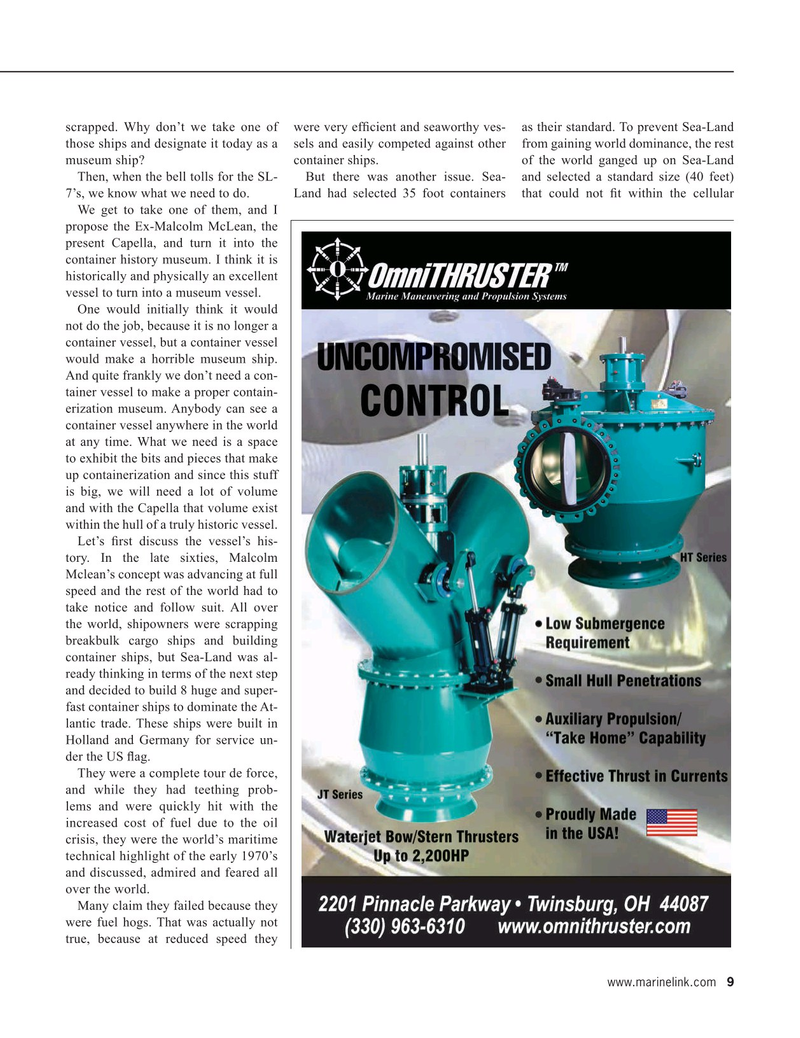
Page 9: of Maritime Reporter Magazine (June 2024)
Read this page in Pdf, Flash or Html5 edition of June 2024 Maritime Reporter Magazine
scrapped. Why don’t we take one of were very ef? cient and seaworthy ves- as their standard. To prevent Sea-Land those ships and designate it today as a sels and easily competed against other from gaining world dominance, the rest museum ship? container ships. of the world ganged up on Sea-Land
Then, when the bell tolls for the SL- But there was another issue. Sea- and selected a standard size (40 feet) 7’s, we know what we need to do. Land had selected 35 foot containers that could not ? t within the cellular
We get to take one of them, and I propose the Ex-Malcolm McLean, the present Capella, and turn it into the container history museum. I think it is historically and physically an excellent vessel to turn into a museum vessel.
One would initially think it would not do the job, because it is no longer a container vessel, but a container vessel would make a horrible museum ship.
And quite frankly we don’t need a con- tainer vessel to make a proper contain- erization museum. Anybody can see a container vessel anywhere in the world at any time. What we need is a space to exhibit the bits and pieces that make up containerization and since this stuff is big, we will need a lot of volume and with the Capella that volume exist within the hull of a truly historic vessel.
Let’s ? rst discuss the vessel’s his- tory. In the late sixties, Malcolm
Mclean’s concept was advancing at full speed and the rest of the world had to take notice and follow suit. All over the world, shipowners were scrapping breakbulk cargo ships and building container ships, but Sea-Land was al- ready thinking in terms of the next step and decided to build 8 huge and super- fast container ships to dominate the At- lantic trade. These ships were built in
Holland and Germany for service un- der the US ? ag.
They were a complete tour de force, and while they had teething prob- lems and were quickly hit with the increased cost of fuel due to the oil crisis, they were the world’s maritime technical highlight of the early 1970’s and discussed, admired and feared all over the world.
Many claim they failed because they were fuel hogs. That was actually not true, because at reduced speed they www.marinelink.com 9
MR #6 (1-17).indd 9 6/4/2024 9:05:20 AM

 8
8

 10
10
